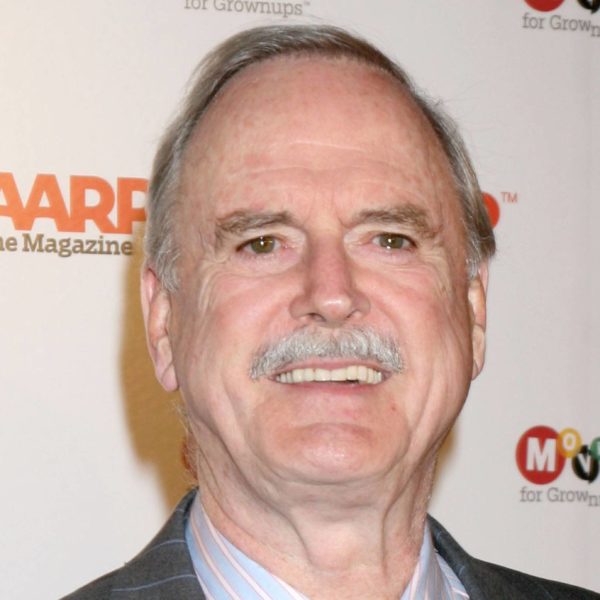It’s Time We Talked About ‘Futurama’
September 4th marked seven years since television’s best comedy came to a final close. Right now you’re probably pouring over every show that ended in 2013, trying to find a way in which Breaking Bad can be considered a comedy or wondering if that horrid Seth MacFarlane show Dads was actually better than you remembered (it wasn’t – oh dear god that show hurt to watch).
No, I speak of course of Futurama, that wondrous, classic sci-fi comedy that debuted in 1999 and aired on-and-off for fourteen years. Over seven seasons (and four movies), we got to know Philip J. Fry, a loser pizza boy from the twentieth century who must adapt to life in the future. We sympathized with his terrible luck, laughed at his cluelessness, and rooted for him to finally wind up getting the girl – in this case, the one-eyed Leela, originally thought to be alien before being revealed to actually be a mutant from the sewers underneath New New York.
But what made Futurama endure for so long (even returning from an initial cancellation by FOX), in order to end only in 2013? Well, it takes a bit of time, and a modern lens from which to observe the show, but the explanation is quite simple, really.
Think of the smattering of adult animated shows that have cropped up in the last decade, from the really good (BoJack Horseman, Rick & Morty) to the really bad (what the hell is Pacific Heat, anyway?). What do they generally all have in common, other than usually finding a home on Netflix or Hulu?
It’s their characters. They’re all so…unlikable. The Griffins are so terrible in Family Guy that the psychopathic baby is the breakout character, and the kids in South Park combine edgy 1990s humor with demented Gilbert Gottfried-level voices. Everybody in Archer is such a monster that as viewers we wind up gravitating towards the neurotic clone of Adolf Hitler – a sentence most of us never thought we could say.
BoJack Horseman, though one of the great animated shows of history, is all about toxic people doing toxic things, while Rick & Morty treads in much of the same lane. The fact of the matter is, all of these shows are about bad people trying to do less-than-bad things… and often failing. It’s realistic, perhaps, but it can get so tiring watching characters engage in the same self-destructive tendencies all the time.
Contrast this with Futurama, where the overarching comedic philosophy is that of ‘you gotta do what you gotta do.’ Fry, Leela, and the rest of the Planet Express crew are genuinely decent people just trying to get by in the 31st century. Even misanthropic alcoholic fan-favorite Bender Rodriguez isn’t even that bad, portrayed as loving and loyal even if he’s an abrasive egomaniac. What other show has had such well-meaning characters?
One could argue maybe Matt Groening’s other hit show, The Simpsons, but let’s be frank. That show, much like Seinfeld, has aged terribly, and the new seasons – well, no point being poetic here, they tend to suck.
Past just the characters, Futurama excelled where many of its contemporaries failed by its sheer scope and ambition. Very few shows could conceivably have plots where we discover that a main character, who slept with their grandmother in 1947, is their own grandfather, thus stripping him of his delta brainwave and making him immune to mind control – yes, you read that correctly.
Even fewer could end an episode on the implication that the whole universe is contained in a box…inside that same universe, thus making the whole universe bend when a character forgets and sits down on the box to watch television.
Quite simply, there are no rules in Futurama, with episodes being made in traditional 1940s cartoon animation, in a video game format, in an anime style, and so on. One of the movies involves a Dungeons & Dragons parallel universe that’s so shameless in its Lord of the Rings homages one can do nothing but laugh.
Hell, the previous movie features the entirety of the universe going out on a date, beginning a relationship with, and eventually moving in with the universe from next door, a giant tentacle monster named Yivo who reveals in his final moments on screen that he has gonorrhea. There truly are no constraints in the world of the 31st century.
We’re talking about a show written by – and for – nerds, a show that wore its sci-fi and comedy influences on its sleeve. Compare that to shows who rely on cutaway gags for cheap laughs, or a show that thinks that repeating “Danger Zone” is high comedy. Yes, Adam Reed, I’m looking at you.
Finally, there are the tear-jerking moments that made the show so legendary initially, most infamously “Jurassic Bark,” in which Fry seeks to reanimate his pet dog from 1999. Upon learning that the dog, Seymour, lived on for twelve years after his departure, he chooses not to, claiming “I’ll never forget him, but he forgot about me a long time ago.”
We as the audience are then subjected to a sped-up montage of what those twelve years looked like, as we see Seymour waiting for Fry’s return at the entrance of the pizzeria where he worked. Seymour grows old and tired but never stops waiting for Fry, eventually closing his eyes and dying.
It’s impossible not to get emotional just thinking about it. That, my friends, is the beauty of the show.
Will we ever see Futurama return once more, as it did in 2008 after five years of being canceled? Would we even want to, given how powerful and excellent that series finale was? It’s up in the air. We’ve seen in recent years how bad reboots of classic shows can be (looking your way, Fuller House), and there’s really no reason to reanimate a perfect show just to ruin it.
Not to mention, past just the series finale, the entire seventh season served as fan service, bringing tear-jerking closure to Fry’s lost relationship with his family
No matter what, though, a decade after its Comedy Central revival, it’s high time we all gave Futurama the respect it absolutely deserved as TV’s best animated comedy.


